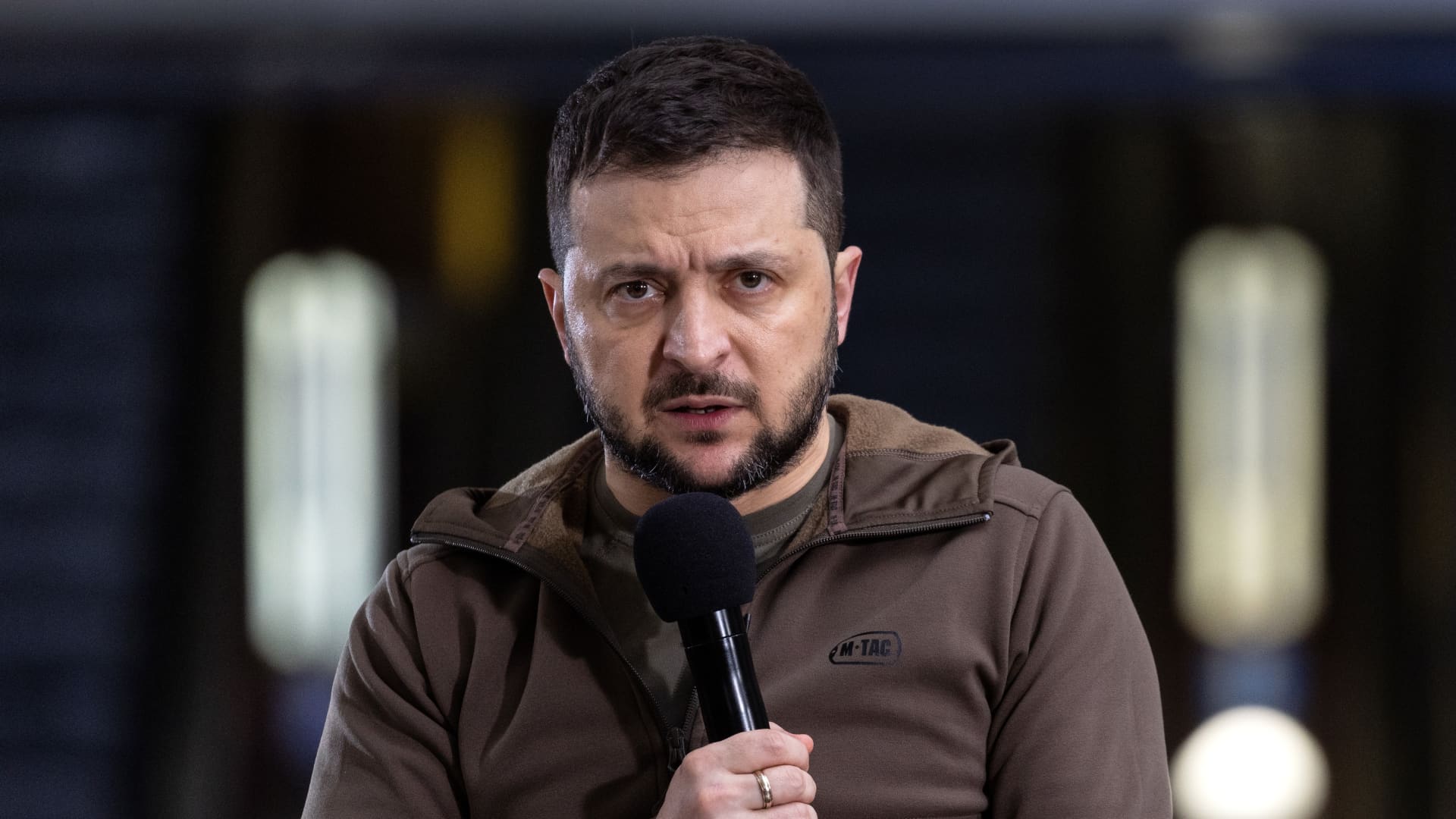
The international community should have supported Ukraine more back in 2014 when Russia first illegally annexed Crimea, President Volodymyr Zelenskyy told the World Economic Forum on Monday.
Making a video address to the political and business elite gathered in Davos, Switzerland, Zelenskyy said that more support — and more preventative measures against Russia — should have been taken years ago to prevent Moscow from inflicting further aggression on Ukraine.
“Russia started its war against Ukraine back in 2014. We are grateful for this support [from the West] but if that happened, back then, immediately — that unity, that pressure on governments and on companies — would Russia have started this full-scale war? Would it have brought all these losses upon Ukraine and upon the world? I’m sure the answer is also no.”
Zelenskyy then called for the “maximum” level of sanctions to be imposed on Russia so that it, and other potential aggressors, would “clearly know the immediate consequences for their actions.”
Russia shocked the world when it invaded Ukraine back on Feb. 24, but its aggressive stance and intentions against its neighbor came to the fore in 2014 when it illegally annexed the Crimean Peninsula from Ukraine.
Western nations imposed sanctions against the Russian regime but to nowhere near the same extent as has been seen this time round, following the full-scale invasion. Western leaders, including then-President Barack Obama, have since been criticized for taking too soft a stance against Russia back then.
Moscow has been stirring up separatist sentiment and unrest in Donbas in eastern Ukraine ever since 2014, and there has been a lower level conflict between Ukrainian forces and separatists from two pro-Russian, self-proclaimed “republics” located in the region.
Over that time, there have been attempts by Western nations, notably France and Germany, to broker peace deals between Russia and Ukraine but no accords have stuck, with each side accusing the other of violating the agreements.
Russia has denied assisting the republics despite overwhelming evidence to the contrary, and it has attempted to justify its invasion of Ukraine by saying it is protecting ethnic Russians in the region. Geopolitical analysts say that claim is spurious.
‘Turning point’
It’s three months since Russia launched its unprovoked invasion of Ukraine with widespread death and destruction across the country as a result of Russian assaults, particularly in the east and south of the country.
Ukraine’s allies in the West have poured billions of dollars and arms into Ukraine’s war effort while treading a fine line of avoiding a direct confrontation with Moscow, which has been heavily sanctioned internationally.
Zelenskyy told Davos that the world was at a “turning point” and that what he called Russia’s “brute force” had to be resisted.
“This is really the moment when it is decided whether brute force will rule the world,” he said. “If so, there is no need for further meetings in Davos,” he said.
Brute force, he said, “seeks nothing but the subjugation of those it wants to subdue … and it does not discuss but kills, and Russia does that in Ukraine just as we speak today.”
Russia has failed to make the headway it expected in Ukraine, and pulled back from an attempt to take the capital Kyiv in April, instead focusing its forces on seizing the Donbas region in eastern Ukraine.
Russia is widely believed to want to take control of southern port cities, like Mariupol and Berdyansk on the Sea of Azov, in a bid to create a land bridge from Russia to Crimea, which it annexed in 2014 and where its Black Sea Fleet is based in Sevastopol.
There are no signs that the war will end any time soon. On Sunday, Zelenskyy said there will be no cease-fire in Ukraine that involves ceding any territory to Russia.




